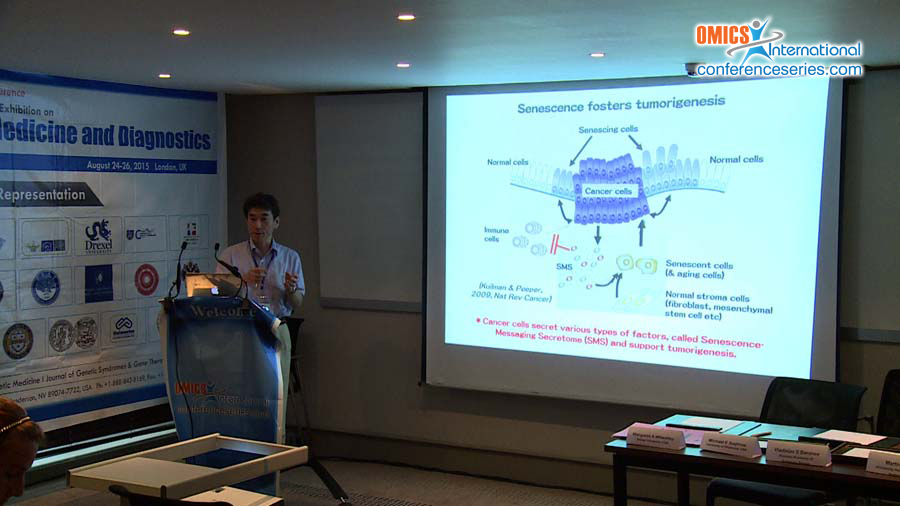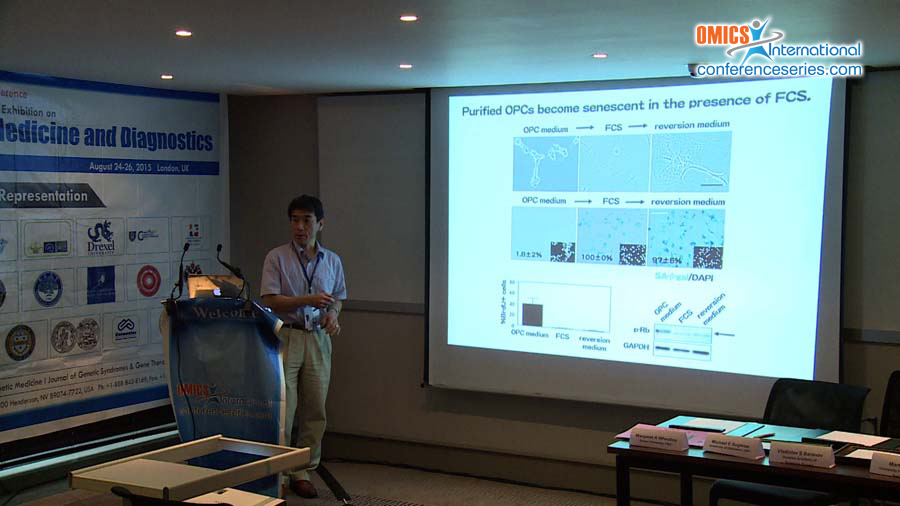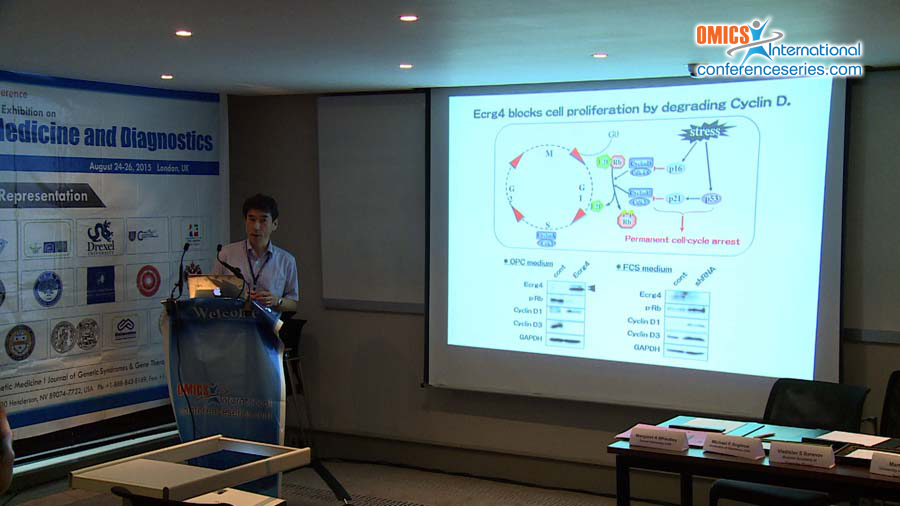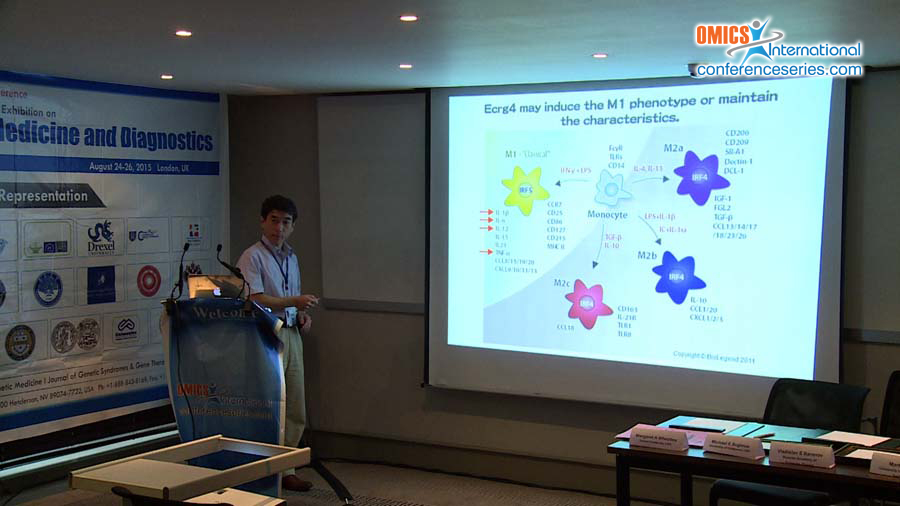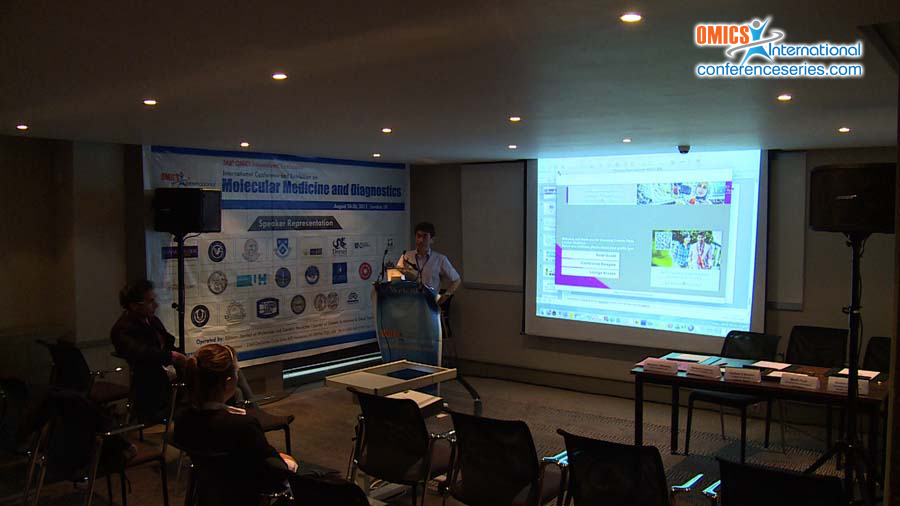
Toru Kondo
Hokkaido University, Japan
Title: Anti-tumorigenic function of the Esophageal Cancer Related Gene 4 (Ecrg4)
Biography
Biography: Toru Kondo
Abstract
Recent findings suggest that tissue-specific stem/precursor cells, including neural stem cells (NSCs) and oligodendrocyte precursor cells (OPCs), acquire mutations during life time and eventually either become senescent or transform into cancer cells. Cell senescence is described as an irreversible growth arrest and acts as a potent barrier to tumorigenesis. Such senescent cells are often found in the surrounding area of malignant tumors, although it still uncertain what is the exact role of cell senescence in tumorigenesis. We recently identified a novel senescence-messaging secretome factor, the esophageal cancer related gene 4 (Ecrg4), which is induced in the senescent NSCs and OPCs as well as in the passaged mouse embryonic fibroblasts in culture and in vivo. Overexpression of Ecrg4 induces NSCs and OPCs to become senescent, while its knockdown prevent them to do so. Using mouse glioblastoma-initiating cell (GIC) models and human glioblastoma tissues, we found a novel tumor suppressor function of Ecrg4. I would like to discuss about Ecrg4 as a new tumor suppressor and a potential therapeutic target.

